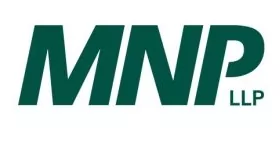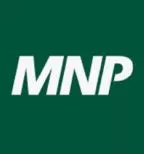Canada's Proceeds of Crime (Money Laundering) and Terrorist Financing Act (the Act) obligates certain businesses with money laundering vulnerabilities to identify clients, keep records, and report prescribed transactions, among other things. We're often asked by payment processors and transaction intermediaries whether they have those responsibilities. We helpfully respond – sometimes. Determining whether the obligations apply depends on facts of the situation.
Is your institution subject to Canada's AML rules?
Some institutions are subject to the Act because of what they are (e.g. a bank) while others are obligated because of what they do (e.g. selling diamonds for cash). Since payment processors aren't specifically mentioned as being obligated because of their business type, the sections relating to activity based obligations, particularly those related to money services business (MSB) activity, become the most relevant. Specified MSB activities include:
- remitting or transmitting Funds
- issuing or redeeming negotiable instruments
- foreign exchange dealing
What constitutes remitting or transmitting funds?
Remitting or transmitting funds involves the transfer or execution of instructions for the transfer of funds. Exemptions include:
- transfers using a credit or debit card, if the recipient has an agreement with the payment service provider permitting such means of payment for goods and services;
- a transfer where the recipient withdraws cash from their account;
- a transfer carried out by means of a direct deposit or a pre-authorized debit ; or
- a transfer carried out using cheque imaging and presentment.
Though ACH payments are not explicitly mentioned in the exemptions, they would be included under the exemption of 'a transfer carried out by means of a direct deposit or a pre-authorized debit'. Some types of ACH payments may not benefit from that exemption due to structure and purpose. For instance, a client may request direct deposits of employee salaries and also request separate payments to suppliers for the purchase of goods (without using a credit or debit card). The direct deposit would be considered an ACH payment exempt for any obligations under the PCMLTFA while the supplier payments may be deemed EFTs with corresponding legislative requirements. Even a few qualifying transactions conducted in a year would qualify a payment processor as a money services business.
What constitutes issuing or redeeming negotiable instruments?
Issuing and redeeming negotiable instruments is seldom applicable to a payment processor, since it requires that instruments are those of the entity, not of a third party. Businesses that accept negotiable instruments as a form of payment are considered to be cashing the negotiable instrument and not redeeming it. The redemption would be conducted by the same entity that issued the negotiable instrument and they would be subject to all legislative requirements stemming from this.
What constitutes foreign exchange dealing?
Foreign exchange dealing is conducting transactions where currency is exchanged for another (whether electronically, through instruments, or physical currency), which may be effected through ACH transfers. It does not include transactions where change is provided in Canadian currency after the purchase of goods or services (other than any of those in the above mentioned money services business activities) with foreign currency. Any excess funds provided in addition to the one(s) required to pay for the product or service would be considered a foreign exchange. With the expected passage of the Budget Implementation Act (the BIA), even companies outside of Canada providing foreign exchange services to people in Canada would be covered. The BIA may also result in virtual currencies being considered currencies in Canada and subject them to foreign exchange standards.
What do you do if you are covered?
Those payment processors considered to be MSBs because of their activities are required to: maintain an updated registration with the Financial Transactions and Reports Analysis Centre of Canada (FINTRAC), retain records of prescribed transactions, identify customers in cases of prescribed transfers with a value of CAD 1,000 and more, report prescribed transactions to FINTRAC, and develop/implement an antimoney laundering compliance program. Upon registration as an MSB, it's likely you will be subject to a FINTRAC compliance examination. Your compliance program should be fully implemented and effective prior to examination.
The content of this article is intended to provide a general guide to the subject matter. Specialist advice should be sought about your specific circumstances.

